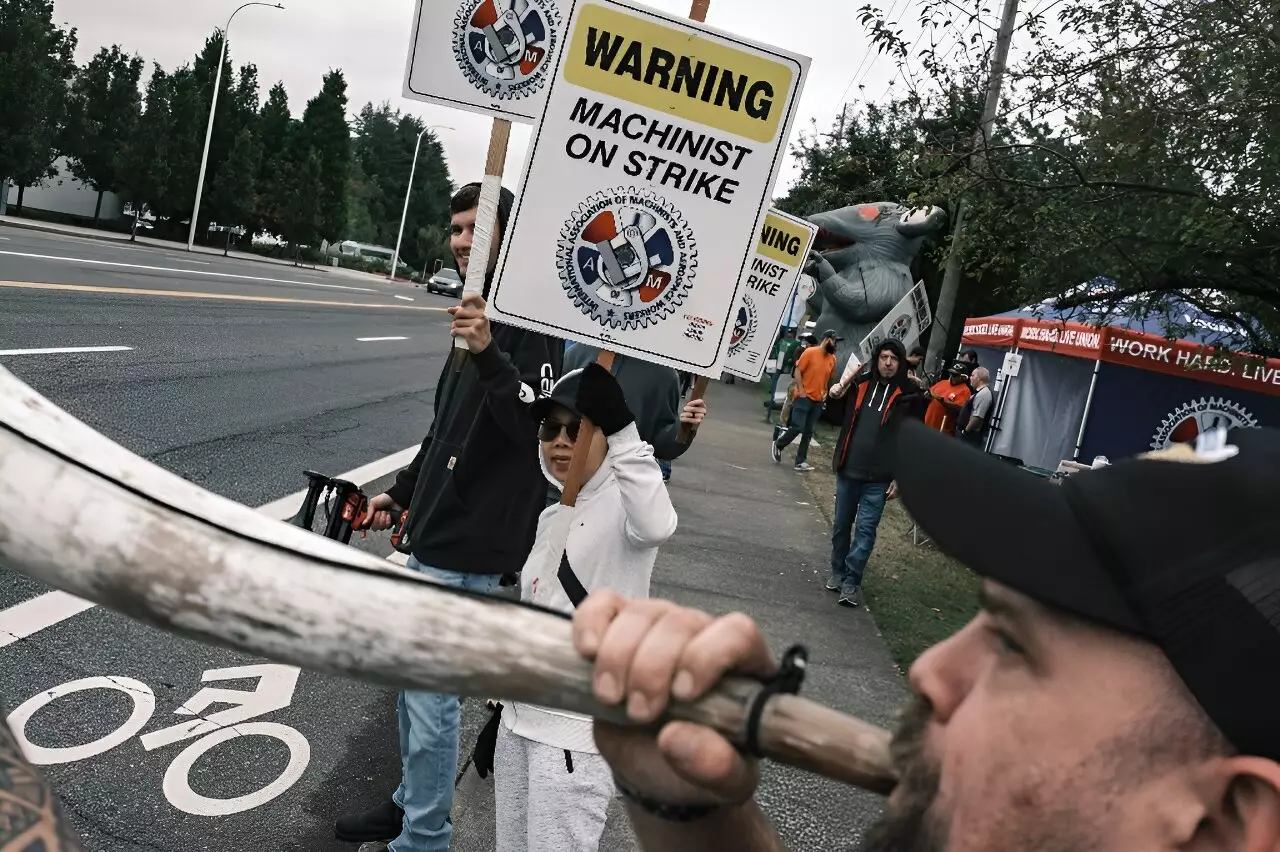The recent labor strike involving Boeing employees represents a significant moment in the ongoing battle between organized labor and major corporations in the United States. Approximately 33,000 workers, primarily from the Pacific Northwest, halted production on September 13, rejecting what they deemed an unsatisfactory contract proposal. This strike has effectively paralyzed assembly operations for critical models like the 737 MAX and 777, highlighting the vital role that workers play in the aviation industry and the delicate balance of power between them and their employer.
Union’s Position and Bottleneck in Negotiations
The International Association of Machinists and Aerospace Workers (IAM) has expressed frustration with the stalled discussions, declaring that negotiations with Boeing had ultimately “broken off.” Despite claiming an openness to future talks, the union highlighted that no further meetings were currently on the calendar. These developments create an uncertain atmosphere not only for the workers involved but also for the company and the wider industry, as extended strikes can disrupt supply chains and erode corporate reputations.
Boeing, for its part, appears to be committed to resuming negotiations, asserting its intention to deepen relations with employees while working in “good faith.” However, words alone may not be sufficient to bridge the gap in expectations, particularly when the core issues—such as wage increases, benefit restoration, and pension plan adjustments—remain unresolved.
One of the main points of contention in these discussions has been compensation. Boeing’s recent proposal includes a dramatic wage increase of 30% for the striking workers, alongside the reinstatement of an annual bonus. However, the IAM has indicated that these offers fall short of adequately addressing workers’ concerns, particularly regarding pension plan reforms. The rigidity of Boeing’s stance on key issues, such as refusing to unfreeze the defined benefit pension plan, complicates the negotiation landscape. The IAM’s public declarations stress their desire for higher wages, more rapid wage progression, and increased paid time off, reflecting a broader trend of workers demanding more significant changes in their employment contracts.
The outcomes of this labor dispute extend beyond Boeing alone; they serve as a bellwether for labor relations across the country. As a growing number of industries experience similar strikes and negotiations, the Boeing situation underscores a pivotal moment for worker solidarity and action. With public sentiment often leaning toward supporting workers’ rights, the pressure mounts on corporate entities to adopt more accommodating positions. It remains to be seen whether Boeing will adjust its negotiating tactics or whether the IAM will decide to intensify its efforts towards mobilizing its membership for a prolonged struggle.
Ultimately, the current deadlock underscores the complexities of labor negotiations within global enterprises, demonstrating how critical it is for both parties to reach an understanding that addresses the needs and expectations of workers, while also maintaining the operational integrity and financial viability of the company itself.

